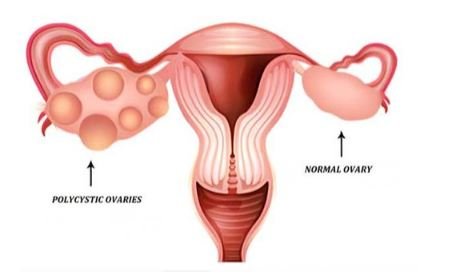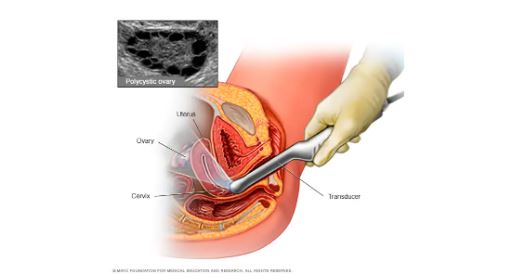What is PCOD & what are the causes and treatments for it?
In this article, Dr. Hrishikesh Pai one of the Top Gynecologists in Mumbai talks about “What is PCOD & what are the causes and treatments for it?”
Dr. Hrishikesh Pai is an internationally renowned fertility doctor. He is well-known and respected not just in India, but throughout the world. He is credited with inventing a number of treatments and procedures that have transformed reproductive therapy in India. He has been recognized with over 50 honors for his remarkable contributions to reproductive medicine.
PCOD or PCOS is a disorder that affects women’s ovaries, the reproductive organs that generate progesterone and estrogen hormones that aid in monthly cycle regulation and also create trace amounts of inhibin, relaxin, and male hormones termed androgens.
Almost 10% of women worldwide suffer from PCOD. In comparison to women with PCOD, women with PCOS produce far more male hormones than usual. This hormonal imbalance leads people to miss menstrual periods and makes pregnancy more difficult.
Apart from unexpected hormonal behavior, this condition has the potential to trigger
- Diabetes
- Diabetes
- Excessive hair growth
- Acne
It’s a pretty common condition, but one that has no known remedy.
Contents
What is the PCOD problem?
Dr. Hrishikesh Pai a leading Gynecologist in Mumbai says that PCOD (Polycystic Ovarian Disease) is a medical illness in which a woman’s ovaries generate an abnormally large number of immature or partially mature eggs, which eventually develop into ovarian cysts.
As a result, the ovaries grow in size and emit a high level of male hormones (androgens), resulting in infertility, irregular menstruation periods, hair loss, and abnormal weight gain. PCOD can be managed with dietary and lifestyle changes.
What is a polycystic ovarian syndrome?
PCOS (Polycystic Ovary Syndrome) is a metabolic illness in which a woman’s reproductive years are impacted by hormonal imbalance (between ages 12 and 51).
Due to the increased levels of male hormones, females may skip menstrual periods, experience irregular ovulation, make pregnancy more difficult, and develop abnormal hair growth on the body and face, all of which can result in long-term heart disease and diabetes. PCOS is a significant medical disorder that requires medical treatment or surgery.
Many women are unaware that they have PCOD / PCOS. The following symptoms are associated with ovulation and the ovaries:
- Cysts ovaries
- Increased male hormone levels
- Periods omitted or irregular
Prevalence of PCOS in India
Only a few researchers were involved in the study, which examined the prevalence of polycystic ovarian syndrome (PCOS) in various regions of India. According to the limited data available, PCOS prevalence in India fluctuates between 3.7 and 22.5%.
Due to a scarcity of data and disparate locations, defining the prevalence of PCOS in India is extremely difficult notes Mumbai-based Dr. Hrishikesh Pai a premium Gynecologist in Mumbai.
What are the most prevalent signs and symptoms of a PCOD / PCOS problem?
While some women notice symptoms around the time of their first period, others do not until they have acquired a significant amount of weight or are having difficulty conceiving. The most prevalent indications and symptoms of PCOD or PCOS in females are the following:
- Menstruation that is irregular (Oligomenorrhea)
- Menstruation has been skipped or there is an absence of menstruation (Amenorrhea)
- Menstrual bleeding is excessive (Menorrhagia)
- Excessive Progression of hair (face, body – including on back, belly, and chest)
- Acne vulgaris (face, chest, and upper back)
- Gain in weight
- Hair thinning (hair on the scalp gets thinner and falls out)
- Darkening of the skin (Neck, the groin, and under the breasts)
Causes of PCOS:
While the exact mechanism by which women develop PCOS is unknown, the following are some major factors:
Overproduction of insulin:
Excess insulin in the body may enhance androgen synthesis (a male hormone that females produce in very small amounts), resulting in ovulation difficulties.
Overproduction of androgen:
The ovaries create excessive amounts of androgen hormones, which can result in acne and hirsutism (hair growth on the face and body)
Heredity:
Women with PCOS exhibit distinct hereditary characteristics opines Dr. Hrishikesh Pai one of the best Gynecologists in Mumbai.
PCOD/PCOS Treatment:
PCOD / PCOS treatment is tailored to your specific needs, including irregular periods, obesity, infertility, acne, and hirsutism. Typically, treatment begins with lifestyle changes such as weight loss, diet, and exercise. Even if you lose only 5 to 10% of your body weight, you can help control your menstrual cycle.
Treatment will vary according to the severity of symptoms such as hair growth, acne, and metabolic issues. This includes the following:
- Medication can be used to regulate the menstrual cycle in order to treat hormonal imbalances and insulin resistance.
- Ovulation induction (ovulation quality and quantity) by oral medications and injections
- Treatment of infertility using fertility medications
- Getting rid of excessive hair growth
- Acne and hyperpigmentation skin treatments
A laparoscopic technique using ovarian drilling is used to eliminate androgen-producing tissue in the ovaries in patients with PCOS who have not responded to hormonal treatment.
Any diet that aids in weight loss may benefit your condition. Certain diets, however, may have advantages over others. Additionally, weight loss can improve cholesterol levels, decrease insulin levels, and minimize the risk of heart disease and diabetes.
Women can benefit from 20 minutes of moderate-intensity exercise at least five days a week. Exercise-induced weight loss also enhances ovulation and insulin levels.
The most effective treatment for PCOD and PCOS will include early identification and the use of appropriate therapeutic modalities to assist alleviate symptoms. Maintaining a healthy lifestyle is critical for treating hormonal imbalances and illnesses associated with them.
Kindly contact your doctor if you have missed periods or other PCOD / PCOS symptoms such as facial or body hair development, or if you have been trying to conceive for 12 months or more without success says Dr. Hrishikesh Pai a leading Gynecologist in Mumbai.


